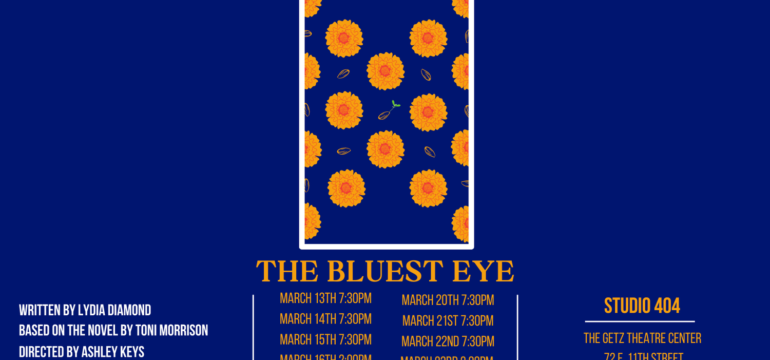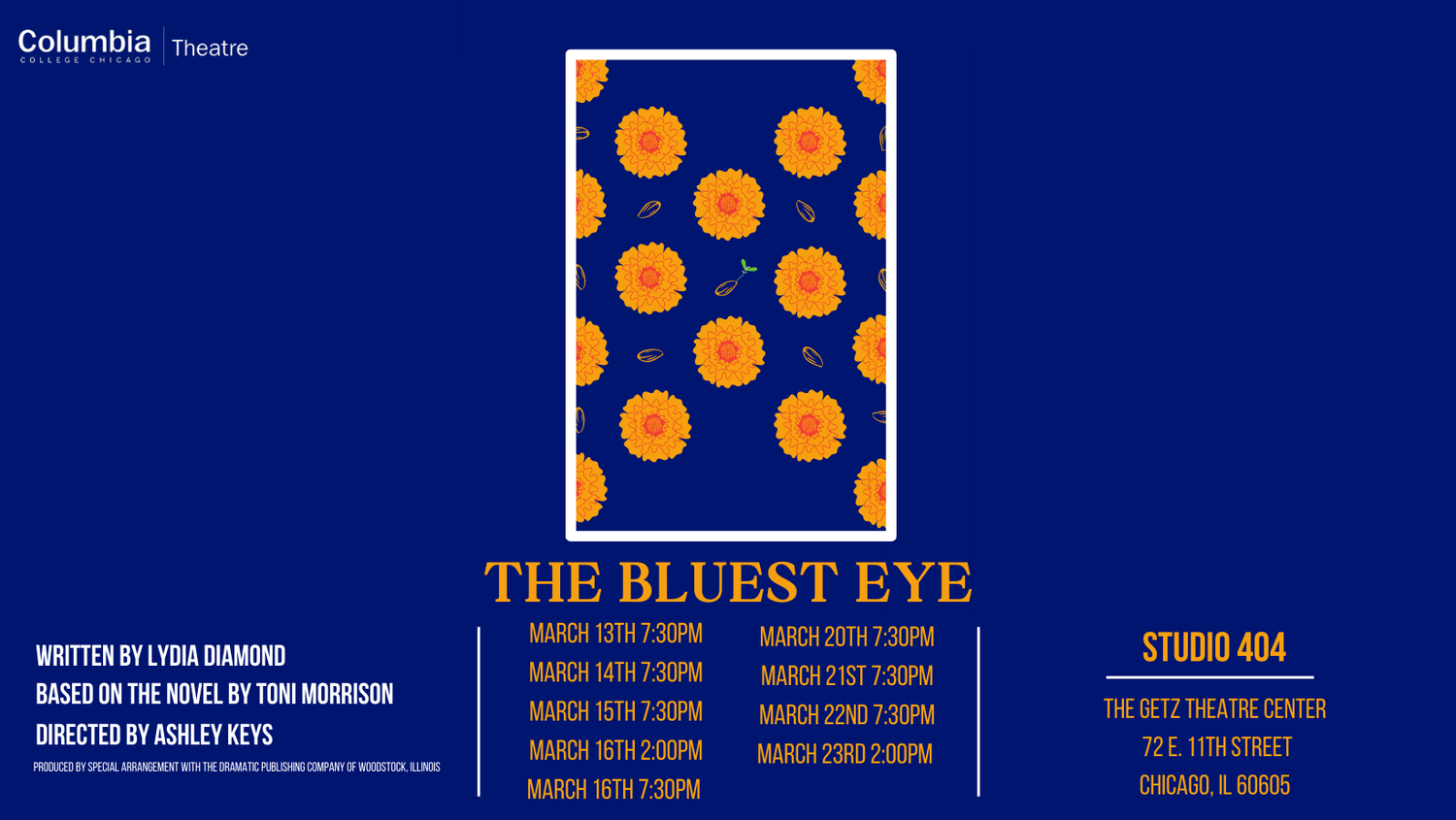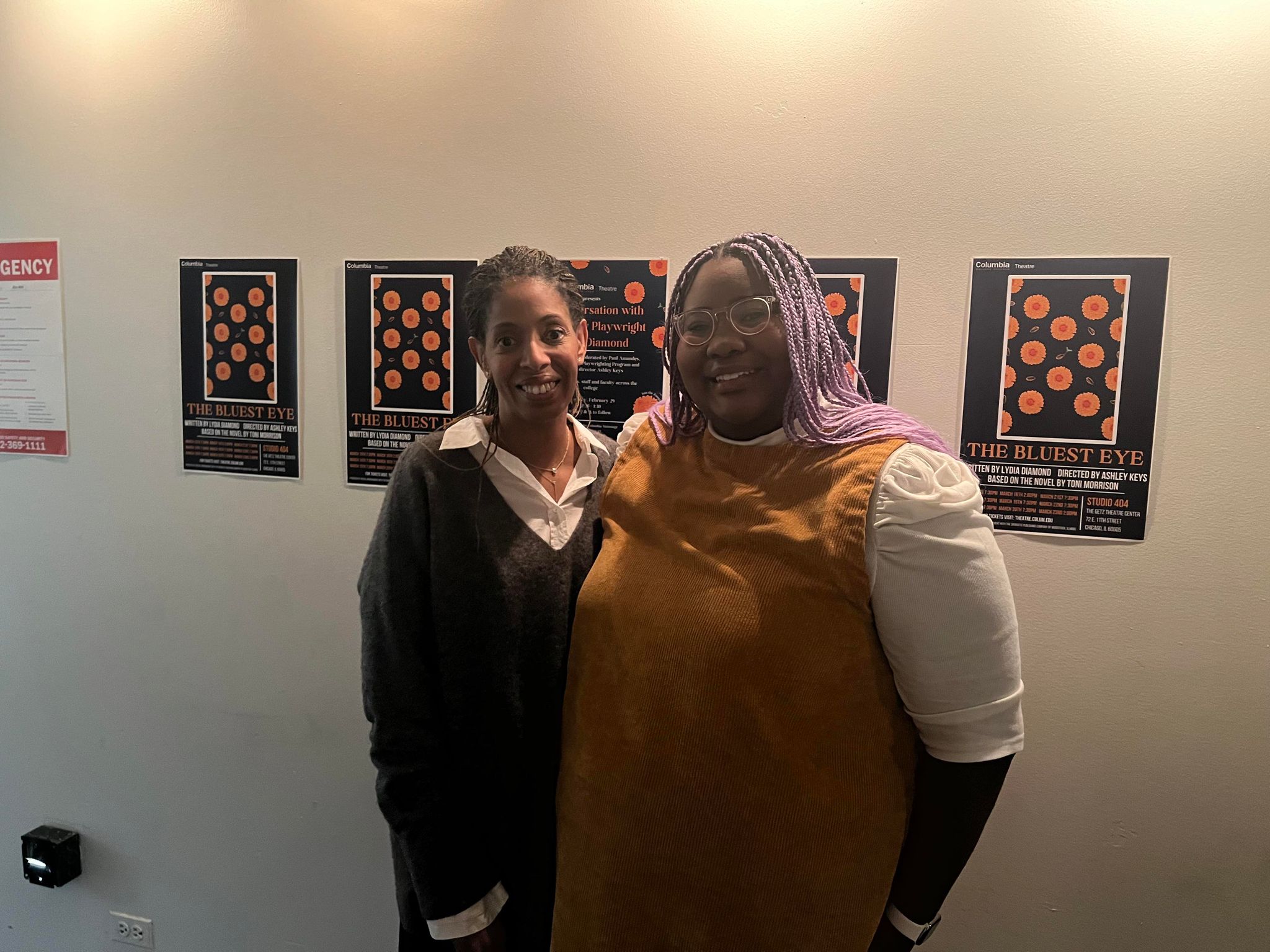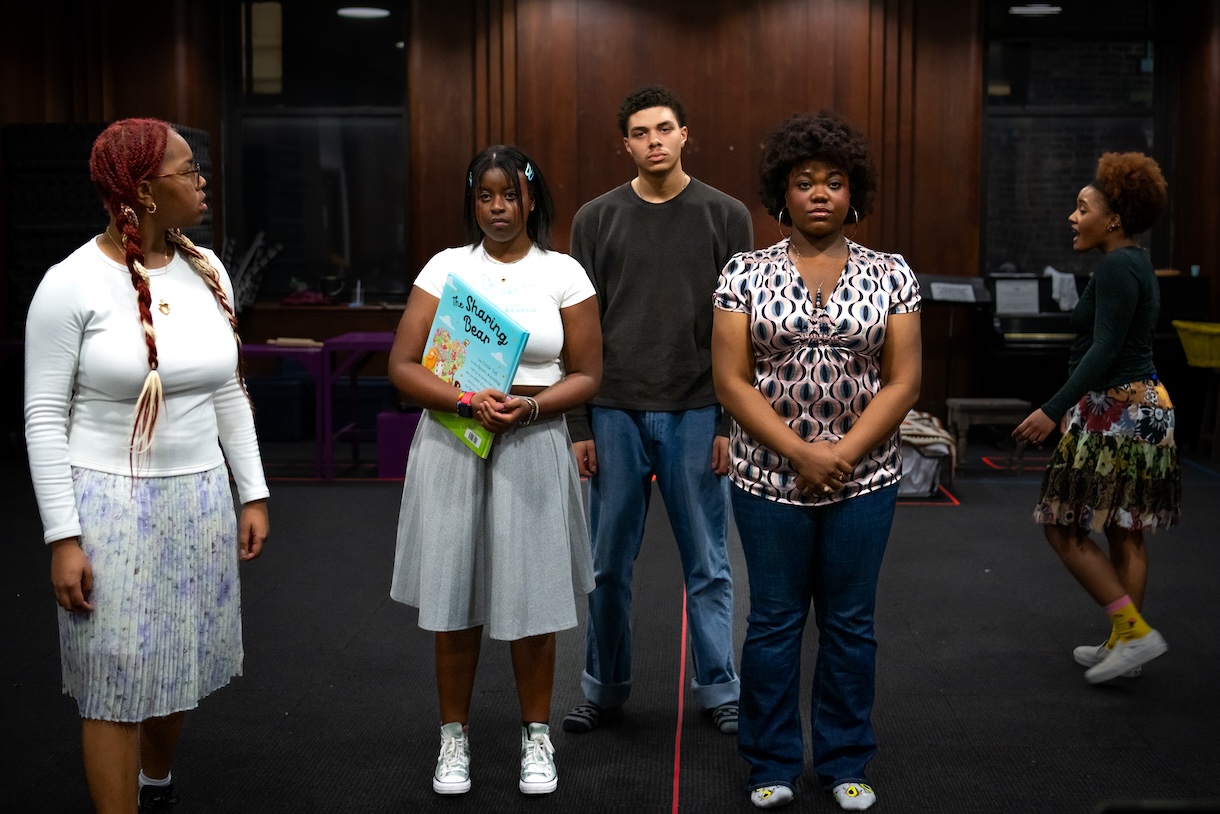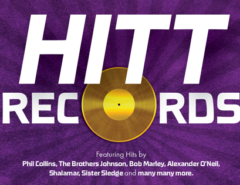The Columbia College Chicago Theatre Department‘s 2023-24 Mainstage Season continues with The Bluest Eye, Lydia R. Diamond‘s stage adaptation of the groundbreaking novel by Toni Morrison. The production runs through March 23 in Studio 404 of the Getz Theatre Center of Columbia College, located at 72 E. 11th St. in Chicago’s South Loop. Student discounts are available. For tickets and more information – including a complete cast and production team list for this LIVE, IN-PERSON production – click here.
The production is directed by Columbia College alum Ashley Keys ’22, a graduate of the Theatre Department’s Theatre Directing program. Keys leads an all-student cast and a production team of Columbia College faculty, alumni, and students.
The Bluest Eye, published in 1970, was the first novel by Toni Morrison, who went on to win both the Pulitzer Prize and the Nobel Prize in literature. In 2005, Chicago’s Tony Award-winning Steppenwolf Theatre Company commissioned playwright Lydia Diamond to adapt the novel for the stage. Diamond’s play premiered at Steppenwolf in 2006 and has subsequently been produced at theatres around the U.S.
The Bluest Eye is an example of the experiences available to Columbia College students through their educational and creative journeys. A standout feature of this production is the collaborative effort across creative disciplines, including Dance and English and Creative Writing. Multiple classes, faculty, and industry professionals came together to provide students with coursework that analyzes Toni Morrison’s seminal work. Says Jeanne Petrolle, Interim Chair of the Columbia College Chicago English and Creative Writing Department: “Our intention with this project is to emphasize the importance of conveying challenging themes with sensitivity and care.”
The Bluest Eye recounts the tragic life of an 11-year-old young Black girl in 1940s Ohio, Pecola Breedlove, who wants nothing more than to be loved by her family and schoolmates. Instead, she faces constant ridicule and abuse. She blames her dark skin and prays for blue eyes, sure that love will follow. With rich language and bold vision, this powerful adaptation of an American classic explores the crippling toll that a legacy of racism has taken on a community, a family, and an innocent child. (CONTENT ADVISORY: Mentions of sexual violence, mentions of incest, domestic abuse and child abuse.)
The American Library Association has reported that The Bluest Eye has been the target of numerous attempts to have the novel removed from school libraries and curriculums. The ALA placed the novel on on its lists of the Top Ten Most Challenged Books for 2006, 2014, 2013, 2020, and 2022. The ALA lists the book as the 15th-most banned book in the decade 2000–2009 and the 10th-most banned book 2010–2019.
In her director’s note for the program for Columbia College’s production, Keys writes: “When I first read The Bluest Eye, I was in an airport, and I had to stop myself from openly crying. Not because it was so sad (it is) but because of how much I and many others can relate to this story. It touches on topics that make you uncomfortable but are honest and hard. That’s something Toni Morrison and Lydia Diamond do so well. They create stories that get under your skin and stay there until you confront what they mean for you. What The Bluest Eye means for me is love. How love is shown in the little things. Learning what love is and isn’t. Learning what loving yourself is as a Black person in a world that centers whiteness and how that can seem like a nearly impossible task. The truth is that it’s not impossible. It can hurt and take time but, in the end, it’s worth it to learn how to love yourself and your blackness. This play has helped not only me, but the entire cast look deep into their own perception of what beauty and love is. How showing love in small ways can change a day around. Every day, this cast and creative team have shown love to each other and in turn has translated that love to beautiful artistry you can see onstage. I’ve learned so much from them and they have learned from each other.”
The Theatre Department’s commitment to making the performance accessible to a wide audience is evident in the inclusion of an American Sign Language-interpreted show on March 21. Additionally, a special “Blackout” performance is scheduled for March 22, intended specifically for a Black or Black-identifying audience. “This performance is a standout moment, reflecting the production’s commitment to inclusivity and cultural sensitivity,” says Petrolle. English and Creative Writing students also studied the pop culture references and racial history that are included in The Bluest Eye, including Dick and Jane, Shirley Temple, and Mr. Bojangles.
On February 29, playwright Lydia Diamond attended an English and Creative Writing class as a guest speaker and shared her insights with a diverse group, including the show’s director, Columbia College Theatre alum Ashley Keys ‘22. Diamond spoke about her responsibility for representing women’s experiences on stage. “My commitment to portraying the realities of the audience members resonates with the core purpose of theater as a platform for reflection and connection,” she says.
According to Diamond, creating a safe space for actors in a Black rehearsal room, balancing laughter and tears, and infusing joy into the process highlight the unique dynamics that contribute to the authenticity of the performance.
The conversation also touched on the challenges in navigating the emotional weight of Morrison’s original text with an adaptation. “There’s a lot to pack into a 90-minute performance,” explains Diamond. “This is a novel I am putting on stage for Toni Morrison. I felt the pressure of getting it right.”

